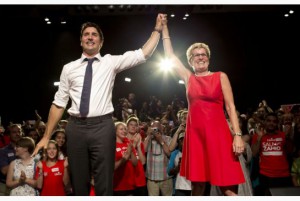As some of you may be aware, TAO’s Mission Statement is to assemble and maintain the knowledge, skills and experience that will allow us to develop and pursue a strategy that optimizes our ability to be relevant to any and all North American enterprises that utilize or should utilize Structured Finance concepts and programs as part of their financing platform. In a rapidly evolving and fragmented marketplace for financial services, no firm can hope to remain at all times and in all respects at the cutting edge; seeking to be continually relevant is the winning long term strategy.
It wasn’t hard to identify maintaining relevance in an evolving business environment as TAO’s leading strategic challenge. The challenge on a personal level is pretty much the same. As I and all around me age, I am constantly reminded of the challenges of maintaining if not finding relevance as a son to aging parents, a father to adult children and a spouse to an empty nest partner. Individuals and institutions must evolve with changing circumstances or be doomed to irrelevance.
Which brings me to Christmas, a Western institution with a longer history than the Hudson’s Bay Company and an even greater cultural penetration than (dare I say it) Facebook. As a child in the Sixties, the reality of where Canadian society was and where it was heading was sufficiently ignored to allow us to believe that we could collectively share the Christmas tradition as a community builder in the context of its literal meaning, the celebration of the birth of Christ. “Merry Christmas” was a wonderful seasonal greeting through which we reassured ourselves and strangers of our common belief in the context of an increasingly complicated and alienating world.
Unfortunately, the requirement of relevance is now bearing down on the public celebration of Christmas. If you offer a “Merry Christmas” to everyone you meet on the street in the month of December, one of three of your recipients would feel no immediate common bond in your greeting. Faced with this challenge to its relevance, any institution, including Christmas, has only three choices. The first alternative is to drive on without accommodation, and painfully allow a touchstone of goodwill to all to become a ritual of division. The second alternative is to mandate the elimination of all public observance, following the model advocated in Quebec’s abandoned Secularism Charter, smothering rather than celebrating the diversity of expression of our common humanity.
The third alternative is by far the richest and most hopeful, and that is to allow the institution to evolve. We could recast the public face of Christmas in its universal essence, the celebration of the primacy of family and the miracle of birth as the kernels of hope for the world, all the while conceding room and respect for those whose observance is more literal. And if we can do that for Christmas, can we not do the same for Yom Kippur, Eid al-Fitr and the myriad other religious traditions that are now integral parts of the Canadian community? Sadly, if this challenge is beyond our collective will and tolerance, then the public celebration of religious traditions that are in their essence a reflection of our common humanity will be untenable in a multicultural and inclusive nation. And we will all be poorer for it.
Merry Christmas to ALL.



